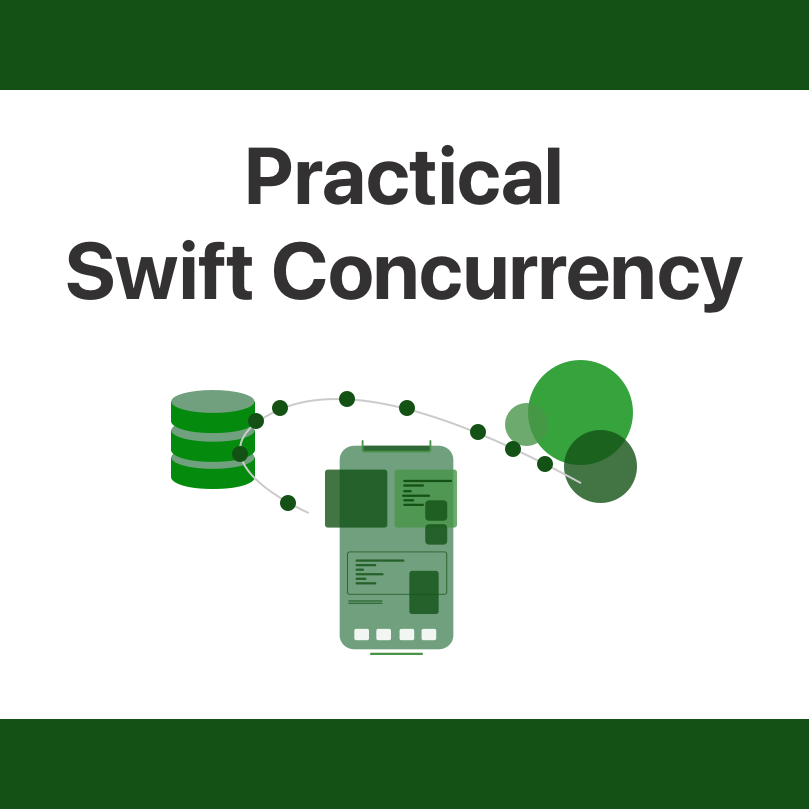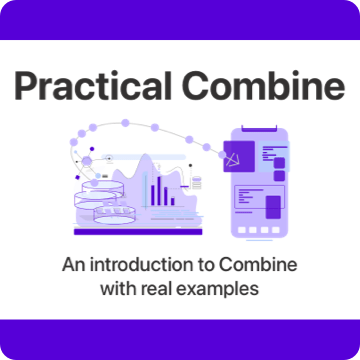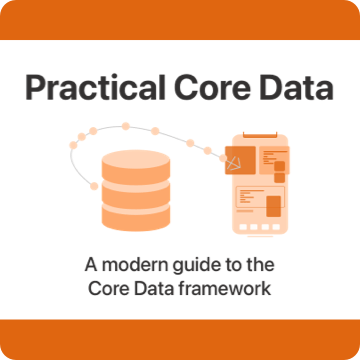Hi, my name is Donny
I'm a curious, passionate iOS Developer from The Netherlands who loves learning and sharing knowledge.
Take a look at my books

Practical Swift Concurrency
Learn everything you need to know to make optimal use of Swift Concurrency in your applications. This book covers everything from awaiting asynchronous method calls to building your own highly concurrent systems. It’s a great introduction for those looking to familiarize themselves with everything Swift Concurrency has to offer.
Buy on Gumroad
Practical Combine
Practical Combine is a book aimed at intermediate to advanced developers who want to learn more about Apple's Combine framework. This book takes you all the way from the basics to building custom Combine publishers using Practical, useful examples that you can start using immediately.
Buy on Gumroad
Practical Core Data
Practical Core Data is for intermediate to advanced developers who want to learn more about Core Data. Whether you're new to Core Data, or tried using it years ago, you'll find that Practical Core Data introduces you to all the essentials to get you up and running with the framework.
Buy on GumroadRecent articles
Jump to a random postUsing Instruments to profile a SwiftUI app
April 16, 2025A key skill for every app developer is being able to profile your app's performance. Your app might look great on the surface, but if it doesn’t perform well, it’s going to feel off—sometimes subtly, sometimes very noticeably. Beautiful animations, slick interactions, and large data sets all fall flat if the app feels sluggish or unresponsive. Great apps respond instantly. They show that you’ve tapped something right away, and they make interactions feel smooth and satisfying. To make sure your...
Read more...Staying productive as an indie developer
April 9, 2025Okay. I’m using the term indie developer loosely here. I don’t consider myself to be an indie developer. But I am independent, mostly. I run my own business where I work on client apps, workshops, my books, this website, my YouTube channel, and more. So I think I qualify as indie, partially. Either way, in this post I’d like to explore something that I don’t write or talk about much. How do I, as someone that manages my own time...
Read more...Implementing Task timeout with Swift Concurrency
April 1, 2025Swift Concurrency provides us with loads of cool and interesting capabilities. For example, Structured Concurrency allows us to write a hierarchy of tasks that always ensures all child tasks are completed before the parent task can complete. We also have features like cooperative cancellation in Swift Concurrency which means that whenever we want to cancel a task, that task must proactively check for cancellation, and exit when needed. One API that Swift Concurrency doesn't provide out of the box is...
Read more...How to plan a migration to Swift 6
March 6, 2025Swift 6 has been available to us for the better part of a year now, and more and more teams are considering or looking at migrating to the Swift 6 language mode. This typically involves trying to turn on the language mode or turning on strict concurrency, seeing a whole bunch of warnings or errors, and then deciding that today is not the day to proceed with this migration. Today I would like to propose an approach to how you...
Read more...What’s new in Swift 6.1?
February 27, 2025The Xcode 16.3 beta is out, which includes a new version of Swift. Swift 6.1 is a relatively small release that comes with bug fixes, quality of life improvements, and some features. In this post, I’d like to explore two of the new features that come with Swift 6.1. One that you can start using immediately, and one that you can opt-in on if it makes sense for you. The features I’d like to explore are the following: Changes to...
Read more...Why you should keep your git commits small and meaningful
February 19, 2025When you're using Git for version control, you're already doing something great for your codebase: maintaining a clear history of changes at every point in time. This helps you rewind to a stable state, track how your code has evolved, and experiment with new ideas without fully committing to them right away. However, for many developers, Git is just another tool they have to use for work. They write a lot of code, make commits, and push their changes without...
Read more...